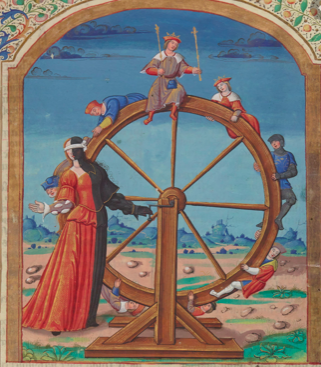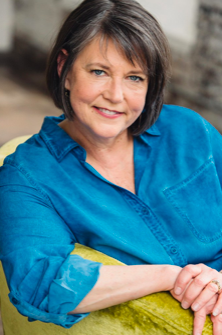
by Kimberly Crum
True stories by ordinary people are commonly referred to as the “nobody memoir.” We lack the plot line of celebrity. No rags turned to riches. No lonely child turned superstar. We are still working on the arcs of our plots. Neither famous nor infamous, the typical nobody memoirist describes the most intense incidents of a lifetime. Drama emerges from adventure, adversity, angst, or abuse. The protagonist climbs a mountain or rows an ocean, walks a thousand-miles on a treacherous seaside- trail, confronts an abusive past, recounts her recovery from rape, exposes a dysfunctional family. Popular memoirs dig deep into the wounded psyche. Triumphant narrators emerge, healed by the crucible of experience. This creates a problem for writers’ lives deprived of high stakes adventure, poverty, or trauma.
My first experience with the problem of happiness was in a college social work internship when my supervisor said, “You can’t understand your clients because you’ve never been poor.” Just as I once questioned my ability to be an empathic social worker, I now ponder my ability to write memoir about a happy childhood. Several questions emerge— What is happiness, exactly? Did I really have a happy childhood? Is it possible to write an engaging memoir about a happy childhood?
An Internet search of synonyms commonly associated with the word “happy,” results in cheerful, merry, gleeful, delighted, and felicitous. None of these words describes my childhood. So, I thumb the pages of the Oxford English Dictionary (OED).
As it turns out, “happiness,” is not exactly what I have always imagined. The word has as its root the Middle English word, “hap,” meaning luck or fortune. This is a revelation, which makes me think of a scene. Our family had been traveling for hours in a rental car when my seven-year old daughter began to sing. She bellowed a spontaneous lyric refrain of her own invention—I’m hap-hap-happy to be myself. I make my life enjoyable. My daughter had happened upon two facts. She sang the root of happiness, “hap,” without consulting a dictionary. And she stated, with lyrical authority, that you make your own happiness (as Ernest Hemingway was alleged to have said, “You make your own luck.)
If you consider the original definition of its root, “happy” does not describe pleasure or merriment. Many life events occur by happenstance. People are often hapless. Stuff happens.
My fortunate birth was a chance event, a happenstance. I am the lucky offspring of educated parents who loved me, offered ample food, safe shelter and experiences that nurtured my curiosity, as well as a cache of clichés. Our father coached us to keep stiff upper lips and chins held high. When times got tough, the tough got going, because hard times build character. We smiled and the world smiled with us.
Mom and Dad ensured that I might endure the ordinary and extraordinary travails of life. And there were many, if you consider another OED discovery—“travails” is the root for “travel.” If my childhood were micro-memoir, it would read like this—
“You’re going to love living in Germany. It’ll be a great adventure.” My mother writes long letters to home on tissue-paper thin blue Air Mail stationary. “We’re moving to England!” Brit kids call me a “rich American,” which is only half correct. “You need to put that child on a diet,” the doctor says. Mom refuses. “You’re just pleasingly plump.” “We’re moving to Memphis, Tennessee!” The children laugh at my British accent. They call me Butterball and Lardo.“There is nothing wrong with her. You worry too much.” Neither can ignore the convulsions. “You’ve got to enroll that child in special education gym classes,” says the doctor. My mother refuses. “You are perfectly normal,” she says. “We’re moving to Chicago!” I hear Elvis sing, “In the Ghetto,” and my grief quickens. The Yankee teenagers laugh at my southern accent. They call me “Southern Fried Chicken” By choice, I lose weight. By happenstance, I grow out of epilepsy, 12 years after the initial convulsion.
What can I learn from this exploration of happiness as it pertains to memoir? I listen once again to the wise words of Flannery O’Connor who said, “No childhood lacks misfortune. The experience of happiness does not mirror the events of a life. Trouble—the stuff of storytelling— comes in many forms.”
In his autobiographical fiction, Dandelion Wine, Ray Bradbury describes a happy childhood— “Along the way, I sat down to breakfasts, lunches, and dinners with the long dead and much loved. For I was a boy who did indeed love his parents and grandparents and his brother.” Boyhood experiences of loss, fear, anxiety, and self-doubt pepper this story of a fortunate boyhood.
The knowledge that I can write memoir about my fortunate childhood does not release me from the real trick of memoir—the writing itself. I need to pull the reader into the narrative is important with good beginnings. I need to capture details and vivid scenes. My real-life characters must be complex.
Yes, I can write memoir about my fortunate childhood, just as I was able to empathize with my social work clients in spite my lucky life. Yet, I will remain a “nobody memoirist”—a situation I am unlikely to resolve.
 Kimberly Crum enjoyed a social work career before getting an MFA in creative nonfiction. She taught composition and literature to Spalding University undergraduates and academic writing to MSW candidates, for ten years. Since 2012, Kim has been the sole proprietor of Shape & Flow Writing Instruction, where she leads memoir and personal essay workshops for aspiring writers who want to tell true stories for posterity or publication.
Kimberly Crum enjoyed a social work career before getting an MFA in creative nonfiction. She taught composition and literature to Spalding University undergraduates and academic writing to MSW candidates, for ten years. Since 2012, Kim has been the sole proprietor of Shape & Flow Writing Instruction, where she leads memoir and personal essay workshops for aspiring writers who want to tell true stories for posterity or publication.
Kim is working the full draft of a segmented memoir titled, Slouching Toward Self-Actualization and is co-editor of a multi-genre literary anthology The Boom Project: Voices of a Generation (Butler Books 2019).
Kim is honored to be the current director of Women Who Write.
 Women Who Write | A Place, A Space, A Voice | Louisville, Kentucky
Women Who Write | A Place, A Space, A Voice | Louisville, Kentucky